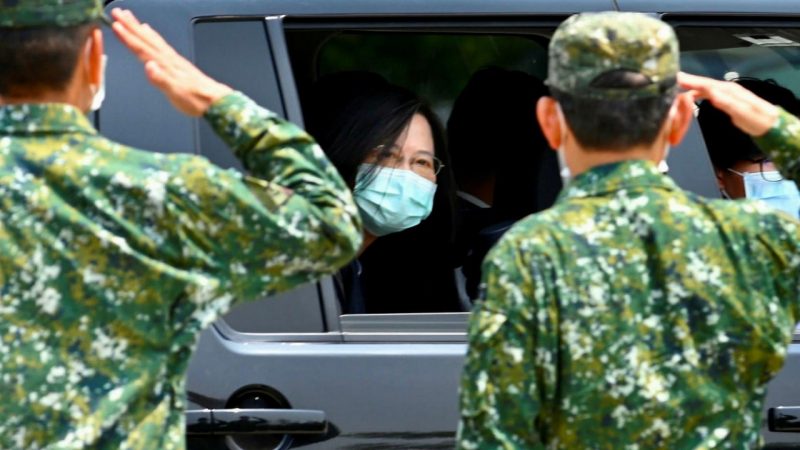- Chinese officials have denounced the United States’ latest sale of weapons to Taiwan, which the Trump administration recently approved
- The US$1.8 billion (around A$2.5 billion) deal provided Taiwan’s comparatively small armed forces with sensors, missiles and artillery
- The U.S. has been supporting Taiwan’s efforts to modernise its military so it can resist pressure to accept Chinese sovereignty
- China’s Foreign Ministry spokesman said that the arms deals “severely damage China-U.S. relations” and warned that they should stop
- Taiwan’s Defence Minister welcomed the latest arms package, but said Taiwan does not want an arms race with China
Chinese officials have denounced the United States’ latest sale of weapons to Taiwan, which the Trump administration recently approved.
The U.S. Government approved a potential arms sale to Taiwan, worth approximately US$1.8 billion (around A$2.5 billion). The arms package from this latest deal has provided Taiwan’s comparatively small armed forces with weapons and technology, including sensors, missiles and artillery.
It is expected that additional arms deals for drones and land-based Harpoon anti-ship missiles will occur in the future. If obtained, these weapons would serve as coastal defence cruise missiles for the small island nation off of China’s south-eastern coast.
For some time now, the U.S. has been encouraging Taiwan to modernise its military, and providing the necessary support to make the update a reality. While the U.S. has no formal diplomatic ties with Taiwan, it is currently its strongest international backer.
However, the Chinese Government has responded negatively to this latest weapons sale, warning of the consequences of further U.S. involvement in Taiwan. China’s Foreign Ministry spokesman, Zhao Lijian, insisted that the sales should stop altogether.
On Thursday, October 22, he said that the sales “seriously interfere with China’s internal affairs, seriously damage China’s sovereignty and security interests, send a seriously wrong message to Taiwan independence forces, and severely damage China-U.S. relations and peace and stability in the Taiwan Strait.”
The spokesman’s statement is reflective of China’s ongoing belief that Taiwan is not a separate and independent nation, but a territory that belongs to the People’s Republic of China. In keeping with this belief, the Chinese capital of Beijing has been increasingly pressuring Taiwan to accept Chinese sovereignty.
Such acts of pressure included flying Chinese fighter jets across the mid-line of the Taiwan Strait, the body of water which separates Taiwan from China, and is considered something of an unofficial border between them.
The spokesman went on to say that China will respond to the U.S.-Taiwan arms deal according to how the situation develops. While he did not elaborate on what kind of response the U.S. and Taiwan can expect, China has previously imposed sanctions on U.S. companies which sold weapons to Taiwan.
Taiwan’s Defence Minister, Yen De-fa, thanked the U.S. for the weapons, which he claimed will help Taiwan improve its defensive capabilities. However, Mr Yen also expressed that Taiwan does not wish to enter an arms race with China, and would prefer to deter any possible confrontations.

